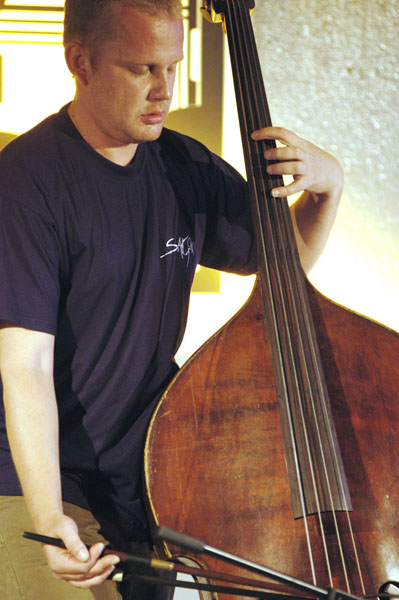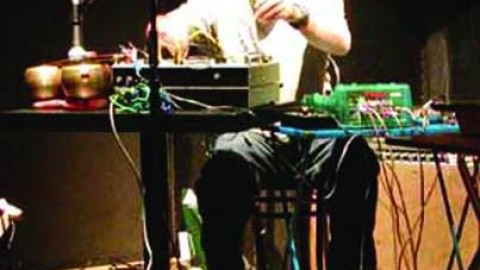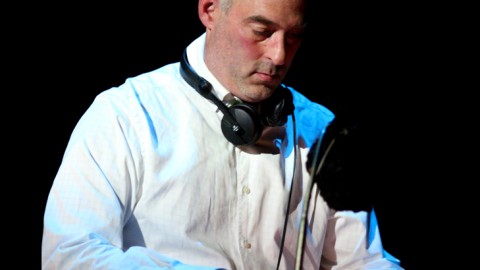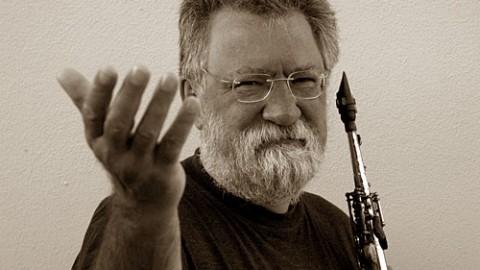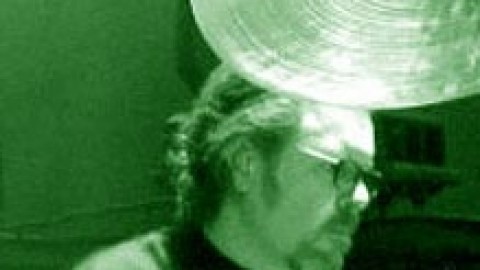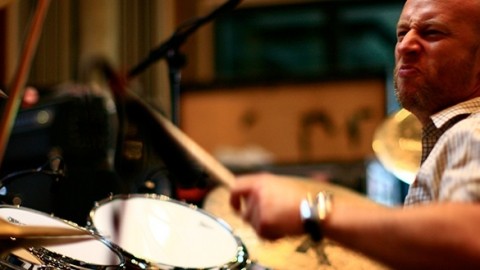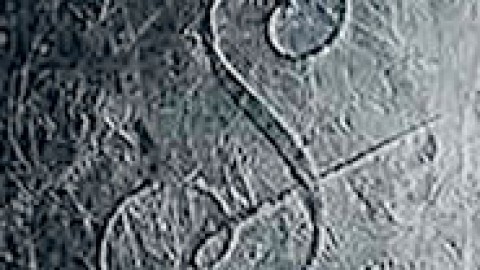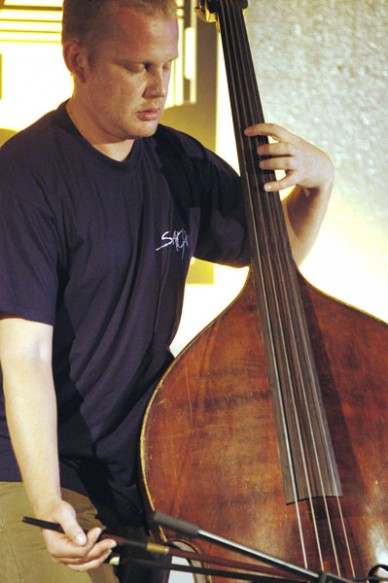
Werner Dafeldecker is an Austrian double bassist and guitarist.
In Austria bassist Werner Dafeldecker (1964), a co-founder of the jazz ensemble Ton Art in 1985 that released Ant.Ort (january 1987), Zu (may 1989 – Hat Art, 1989) and Mal vu Mal dit (february 1991 – Hat Art, 1991) formed the improvisation ensemble Polwechsel with guitarist Burkhard Stangl, cellist Michael Moser and trombonist Radu Malfatti, that released Polwechsel (september 1994 – Hat Hut, 1998), Polwechsel 2 (january 1998 – Hat Hut, 1999), with Malfatti replaced by saxophonist John Butcher, and Polwechsel 3 (july 2001 – Durian, 2001).
During the 1990s he was involved in many many collaborations but never released albums under his own name. (Susanna Heilmayr on oboe and viola, Bernhard Spahn on alto saxophone, Hans Steiner on bass clarinet, Klaus Peham on trumpet and flugelhorn, Tom Varner on French horn, Burkhard Stangl on guitar, Michael Moser on cello, Werner Dafeldecker on bass, Paul Skrepek on drums)
Comprovisations I-X (july 1991 – Extraplatte, 1991) was a collaboration with Max Nagl on saxophones, Ned Rothenberg on alto saxophone and bass clarinet, Tom Varner on French horn and Burkhard Stangl on guitars.
Other collaborations included: Bogengange (october 1994), a bass duet with Uli Fussenegger; Printer (may 1999) with the other bassist Uli Fussenegger and turntablist Dieter Kovacic; Aluminium (april 2000), containing the 40-minute Rock And Roll, with guitarist Dean Roberts; etc.
SSSD was the quartet of Martin Siewert, Burkhard Stangl, Taku Sugimoto and Werner Dafeldecker that released Home (april 2000).
Wrapped islands (january 2002) was a collaboration between Polwechsel and Fennesz.
Absinth (july 2002), including the 21-minute Hoth Vibration, was a collaboration with Franz Hautzinger (trumpet), Sachiko M (electronics) and John Tilbury (piano).
Die Instabilitaet der Symmetrie (april 2002) was a collaboration with Brandlmayr, Nemeth and Siewert.
Archives of the North (may 2005) was a collaboration between tenorist John Butcher and Werner Dafeldecker, Michael Moser and percussionists Burkhard Beins and Martin Brandlmayr.
He also composed chamber music: Notorisch Hippopotamus (1987) for trumpet, alto sax, bass clarinet, guitar, contrabass, percussion; Der Untergang (1989) for three contrabasses; Vedute (1990) for oboe, trumpet, altosax, French horn, bass clarinet, cello, guitar, contrabass, percussion; Koekenmddinger (1992) for clarinet, alto sax, tenor sax, trombone, bass clarinet, piano, contrabass, percussion; Geographietorte (1993) for trumpet, soprano sax, melodica, tenor sax, trombone, bass clarinet, piano, guitar, bass, percussion; Markknochen Waelzt Eisschollen (march 1992) for two guitars, cello, bass; Playtime (1994) for tuba quartet; Polwechsel (1994) for trombone, two guitars, cello, contrabass; Die Gaeste der Gaeste der Knappen (1995) for two bass clarinets, two contrabasses, two percussionists; Youth (1995) for trumpet, trombone, tuba, three guitars, contrabass; Of Division (1996) for eight contrabasses; Hyogo (1997) for trombone, guitar, cello, contrabass; Toaster (1998) for tenor sax, two acoustic guitars, CD player, cello; White Hole (1999) for four guitars, four cellos, vocals, computer; etc.
During the 1990s Dafeldecker led the Striped Roses (with pianist Christoph Cech, tenorist Helge Hinteregger, altoist Sascha Otto, trombonist Robert Radelmacher, percussionist Herbert Reisinger and clarinetists Hans Steiner and Donna Wagner), that released Bonsai Beat (april 1990) and + (july 1992), before changing line-up on Insections (may 1994).
Diphtongs (august 1994) collected collages produced at the computer of solos by percussionist Christian Muehlbacher, bassist Uli Fussenegger, trumpeter Lars Lindvall, trombonist Radu Malfatti, clarinetist Ernesto Molinari, tuba player Pinguin Moschner, celloist Michael Moser, alto saxophonist Max Nagl, violinist Andi Schreiber, guitarist Burkhard Stangl.
Polwechsel’s Field (august 2007) featured Werner Dafeldecker, drummers with Burkhard Beins and Martin Brandlmayr, saxophonist John Butcher, and cellist Michael Moses.
(taken from The History Of Jazz Music)

